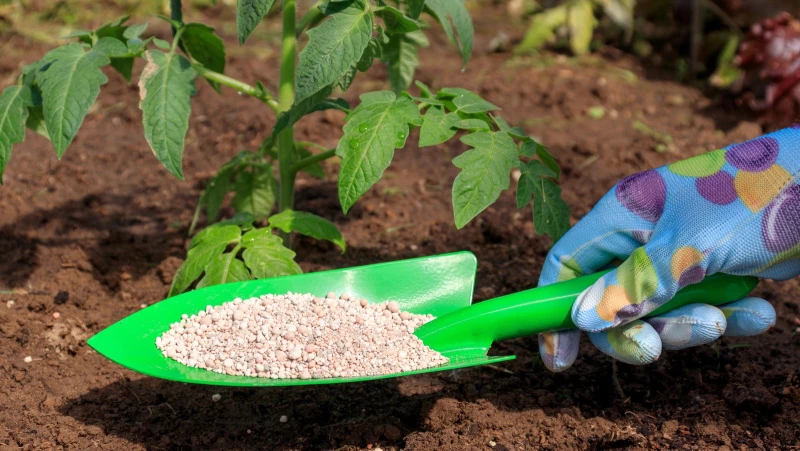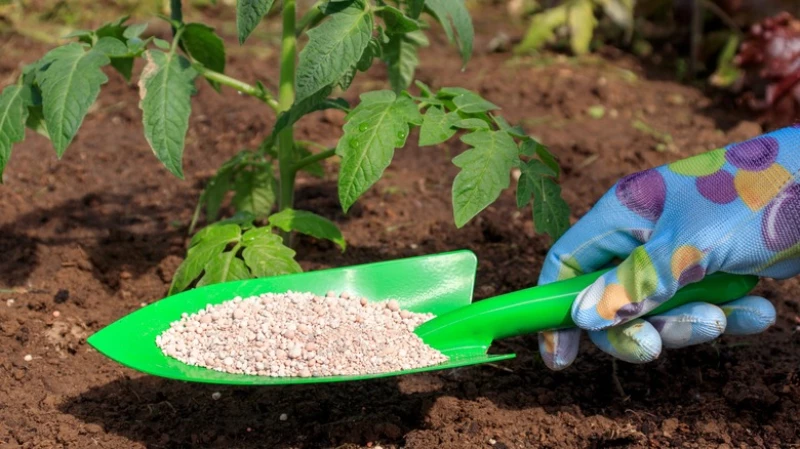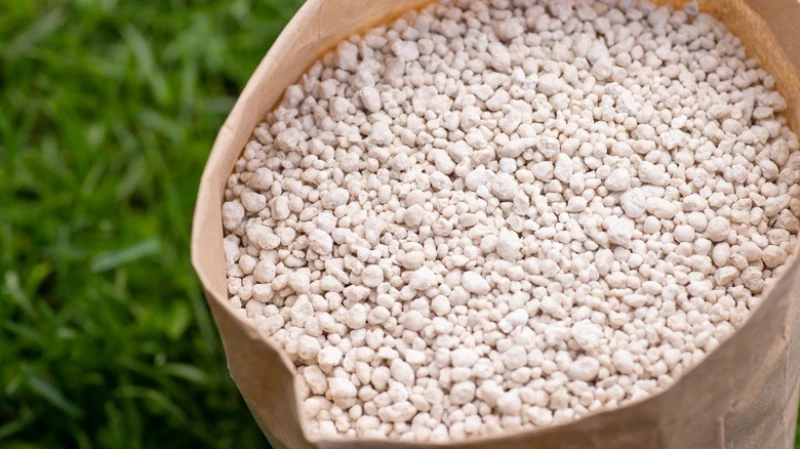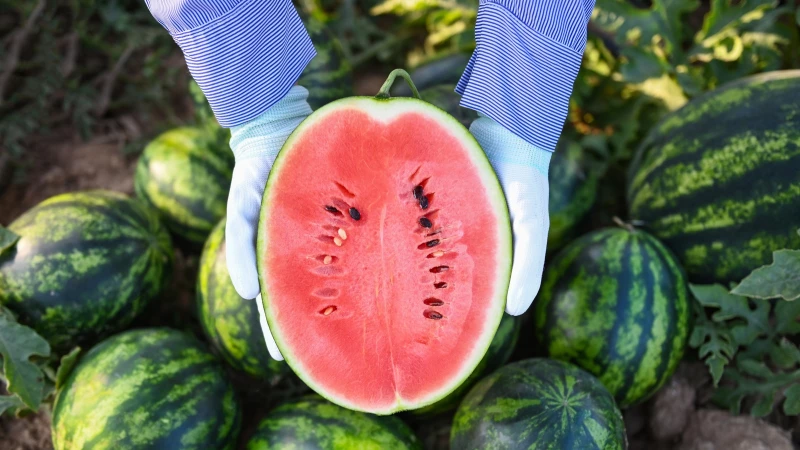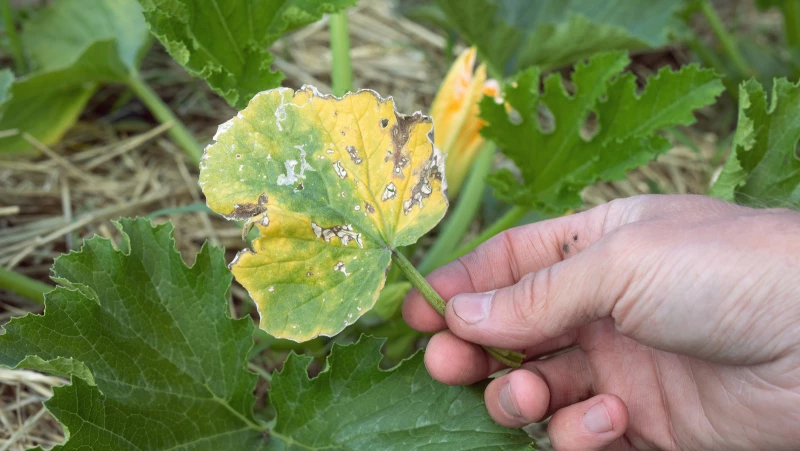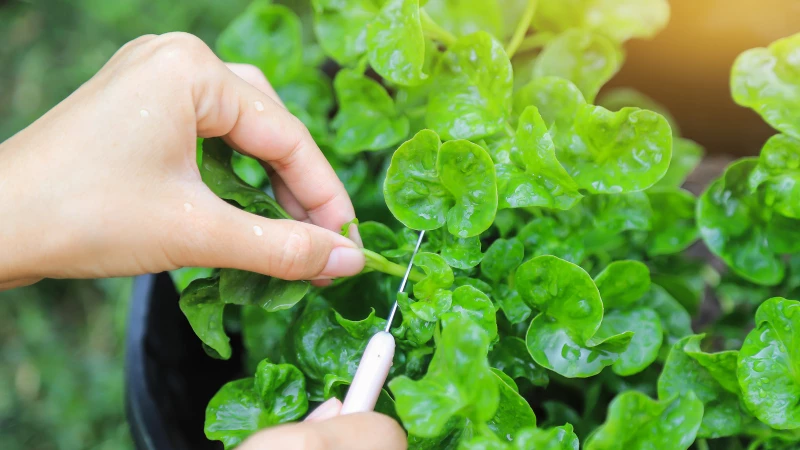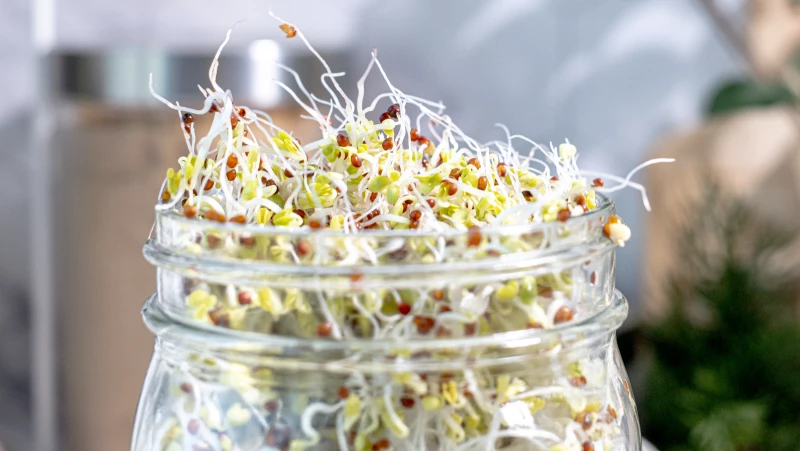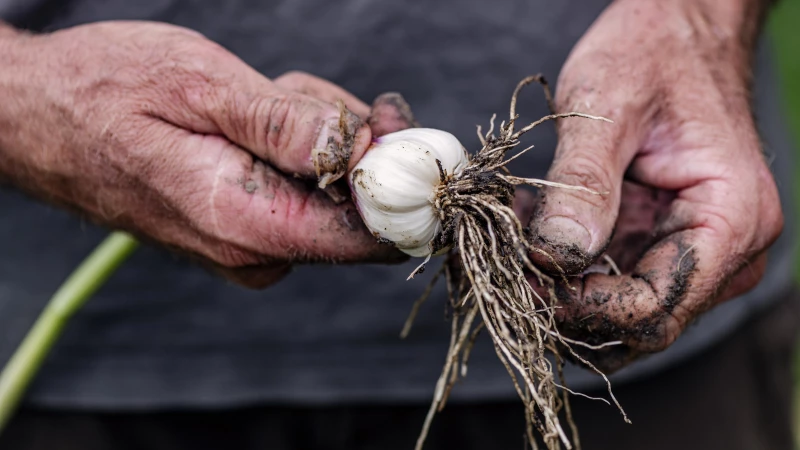Why Lawn Fertilizer Isn't Ideal for Your Garden
By Anonymous
To thrive, all plants need nutrients, but it's possible to have too much of a good thing. For both appearance and health, most plants should have soil that contains chemical elements like nitrogen, phosphorus, and zinc. However, the amount of these compounds needed depends on the soil and what's growing there. Lawn fertilizer is specifically tailored to address the needs of turfgrass, not the plants you're growing in your garden. While there may be some benefits to adding lawn fertilizer to your garden, it's not ideal in most situations.
Typically, lawn fertilizer contains the nutrients necessary to support grass growth with a macronutrient makeup of nitrogen, phosphorus, and potassium. On a bag of lawn fertilizer, you'll notice three numbers, which represent nitrogen, phosphorus, and potassium concentrations. These are considered complete fertilizers because they contain all three components. Other nutrients that can support lawn growth include magnesium, calcium, and sulfur.
Plant growth can suffer if exposed to too much nitrogen. Many lawn fertilizers contain a high amount of nitrogen, often a level that's too high for most gardens. As a result, using it in a garden is likely to limit the growth and production of fruits and vegetables.
What happens when you use lawn fertilizer in the garden
Each component of lawn fertilizer has a specific purpose. For example, all plants need nitrogen. It helps to support the development of flowers, roots, and leaves, in addition to providing plants with their green color. If your garden plants have yellowing of the leaves, that could be a sign of too little nitrogen. If you're growing leafy greens, they may benefit from more nitrogen in the soil.
Lawn fertilizers often contain phosphorus, which is a powerful aid for the development of root systems and the production of both flowers and fruit. If your plants grow slowly or don't flower to produce vegetables, it could be due to a phosphorus deficiency. Potassium also helps with the production of fruit and vegetables — too little can lead to limited production.
While lawn fertilizer contains all these components, most products have too much nitrogen for the majority of garden plants and can lead to damage. A key complication is that not all vegetables have the same demand for nitrogen. For example, tomatoes benefit from a higher concentration than sweet potatoes. Knowing the specific nutrient requirements of the plants you are growing makes a big difference in choosing a fertilizer.
How to choose the right fertilizer
Once you know the plants you plan to grow in your garden, the next step is to complete a soil test. This is the most reliable method for understanding the supplemental needs of your garden soil. You can send samples of your soil to a lab in your area or purchase a soil testing kit from a garden center. The goal is to understand what type of supplementation your soil needs for the plants you're growing.
When you have this information, look at the lawn fertilizer label to determine the concentration of nutrients in the product. Typically, this is expressed in a three-part ratio representing nitrogen, phosphorus, and potassium, in that order. If your soil test shows that your garden is lacking in nitrogen, adding a lawn fertilizer could be okay to do. However, if the nitrogen level is already very close to the ideal levels for your vegetables, using a lawn fertilizer could create complications. Typically, too much nitrogen can lead to lower sugar content within the vegetable, and it may make the fruit or vegetables less firm. It can also impact the flavor and scent of the vegetables.
Many plants require a variety of nutrients, including micronutrients like zinc, manganese, boron, and copper. Unfortunately, these micronutrients are typically not found in lawn fertilizers. A more suitable alternative would be to use an organic fertilizer, as it can help balance the overall nutrient content of the soil and support healthy plant growth.

